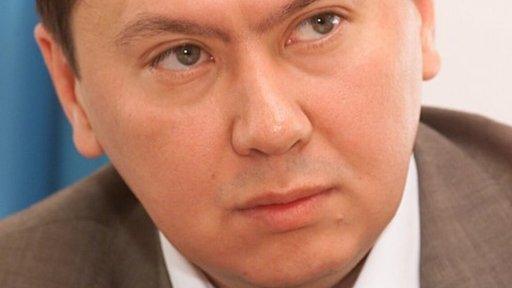Kazakhstan constitution: Will changes bring democracy?
- Published
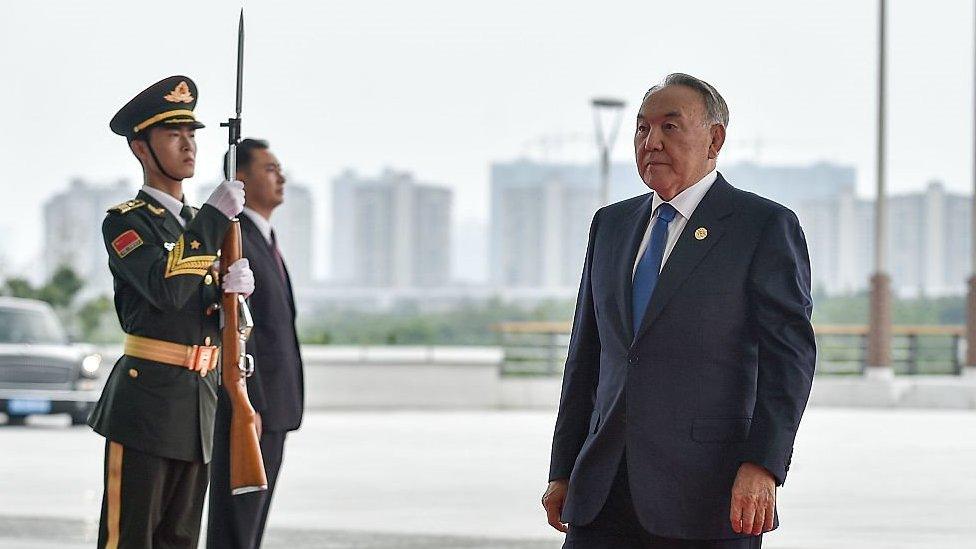
President Nazarbayev, 76, says the aim is to democratise government
Authoritarian leaders usually seize more control - but Kazakhstan's President Nursultan Nazarbayev has agreed to share some of his powers with parliament and the cabinet. Are the constitutional changes a real step towards democracy or could they be a political manoeuvre?
What has changed?
The amendments proposed by Mr Nazarbayev and approved by parliament on Monday will give lawmakers more power, on paper. The cabinet will now report its main initiatives not just to the president but also to parliament.
Presidents will no longer be able to issue decrees that have the power of law. And parliament gets a greater say in appointing and sacking cabinet members, while the executive branch becomes more independent.
The president will no longer be able to override parliamentary votes of no-confidence in cabinet members.
"Upon my instructions, the cabinet prepared the bill that will delegate 35 responsibilities of the president to lower levels of government," President Nazarbayev, who has been regularly criticised for persecuting opponents and violating human rights, told a joint session of parliament.
Under the changes he will no longer be able to suspend decisions taken by the prime minister and cabinet, so they will be fully responsible for implementing state programmes and policies.
Will this really strengthen democracy?
Although the changes seem to strengthen the system of checks and balances, and allow some mechanisms to limit the president's power, many observers remain sceptical.
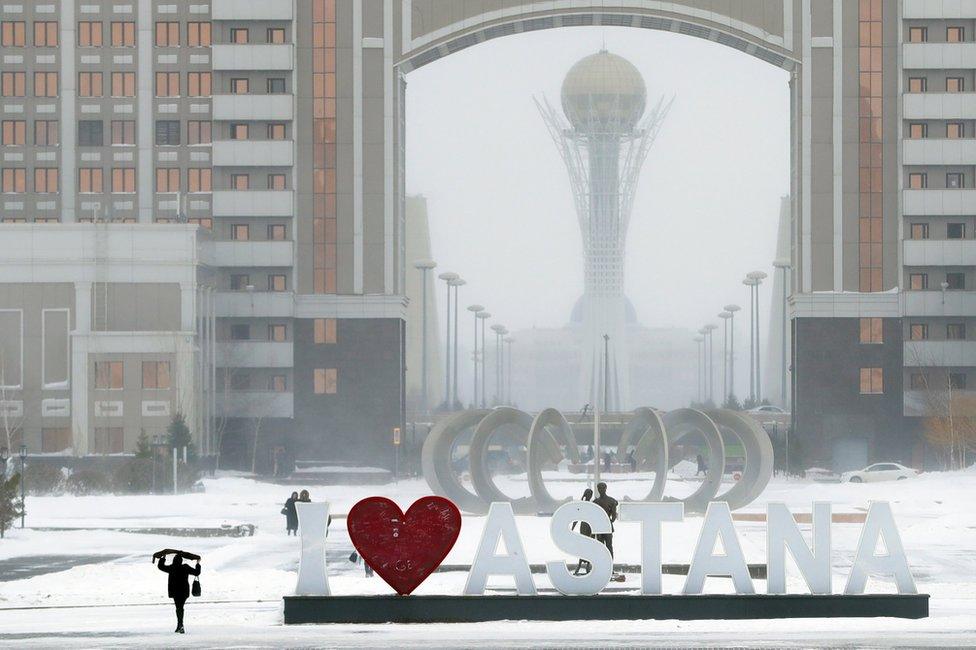
Many people in Kazakhstan and its capital Astana have never known another president
In the absence of a genuine opposition, the changes will be cosmetic, they say.
Dosym Satpayev, a political analyst based in Almaty, argues that if the government doesn't allow real opposition to compete for power, then strengthening parliament will not advance democracy in the country since only pro-presidential parties will get seats after the elections.
Also, the amendments will keep the president as the "supreme arbitrator" who will serve as a power broker between different branches. He will keep his powers to appoint ministers of foreign affairs, defence and interior.
The role of the president as the "founder of independent Kazakhstan, the first president and the leader of the nation" will also be enshrined in the constitution.
So what's the purpose of the reforms?
Many observers agree that the constitutional changes are aimed at preparing the ground for a political succession in Kazakhstan, the only former Soviet republic still run by a leader from the communist era.
President Nazarbayev is 76 and many in the oil- and mineral-rich country wonder who will replace him.
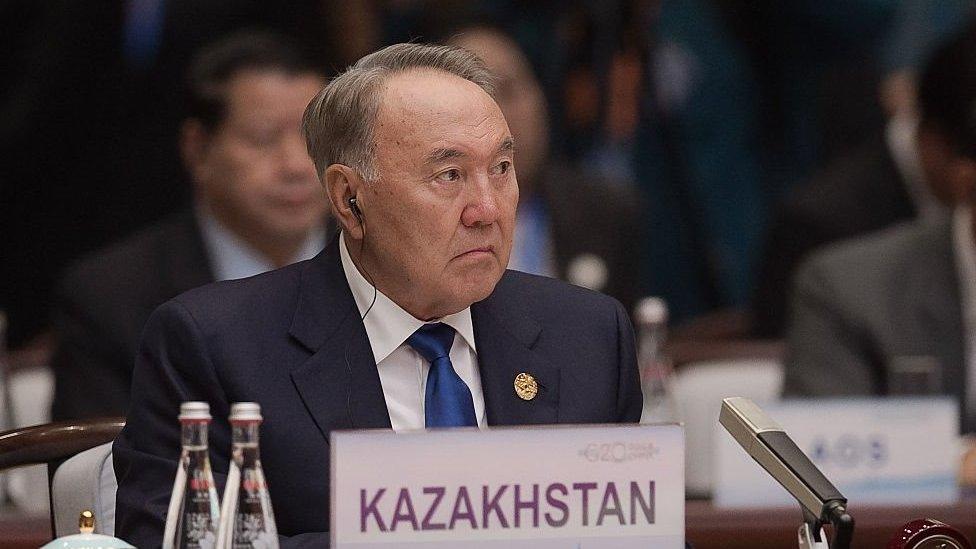
President Nazarbayev's long rule may be nearing an end
The death of Islam Karimov, another long-serving leader in neighbouring Uzbekistan in September, may have reminded Mr Nazarbayev of the need to prepare for a succession.
Following Mr Karimov's funeral, analysts point out, there were several key appointment in Kazakhstan, including a new security services head. A number of top level state officials were also arrested, Dosym Satpaev says, which is seen as a signal that the government is actively getting ready for a succession.
The constitutional changes are being seen as part of this process.
"We also need to get ready for a power transit," said Yuriy Buluktayev from the Kazakhstan Institute of Strategic Studies, "and that's why it's important to strengthen political institutions, first of all the parliament."
The amendments are aimed at helping ensure a smooth power transition when the time comes.
They will provide protection for the president and his family and ensure that his successor will continue the same politics carried out by Mr Nazarbayev, observers say.
Kazakhstan's constitution has been changed a number of times in favour of the president and there are no guarantees that whoever comes after Mr Nazarbayev will not do it again.
- Published11 September 2015
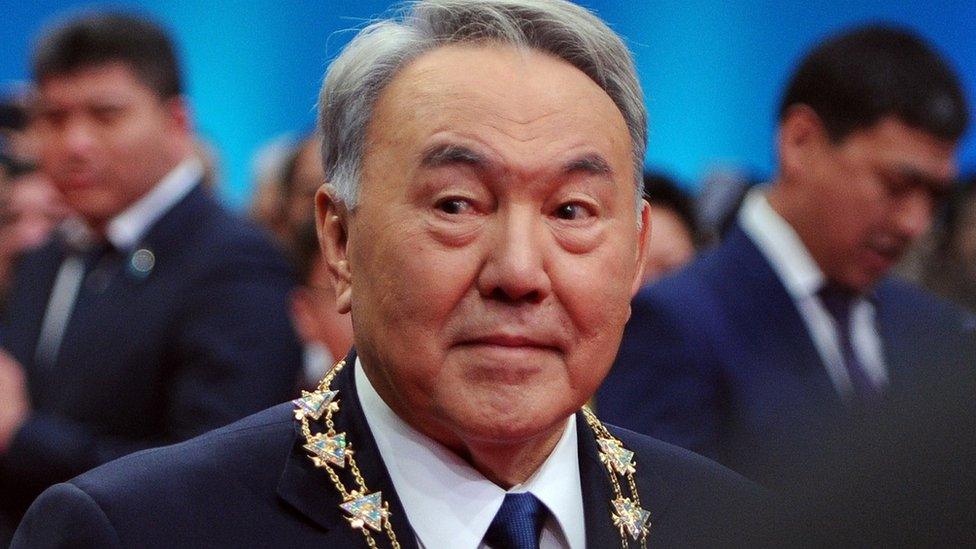
- Published27 April 2015
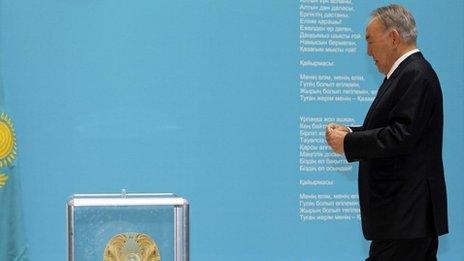
- Published9 March 2015
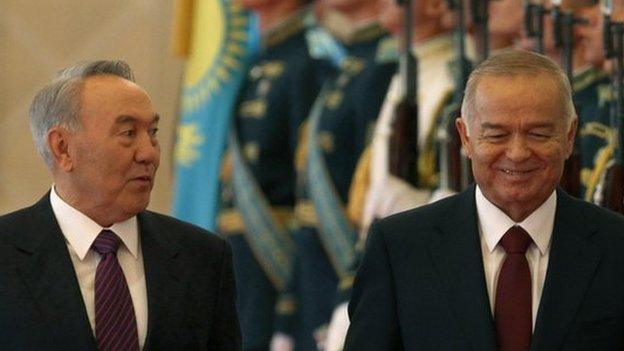
- Published26 April 2015

- Published25 February 2015
